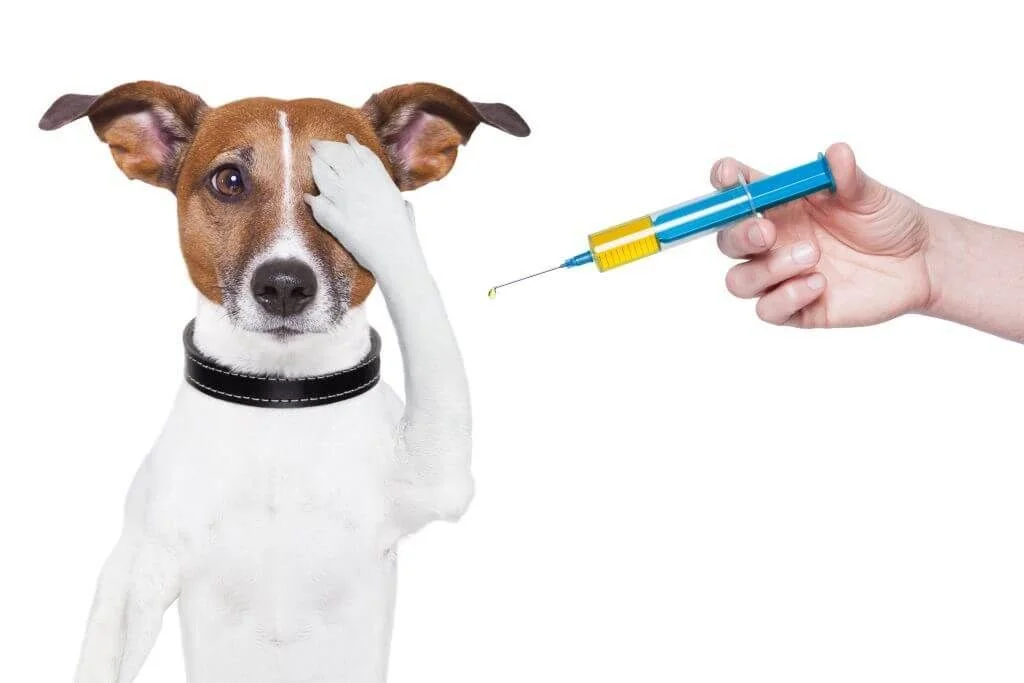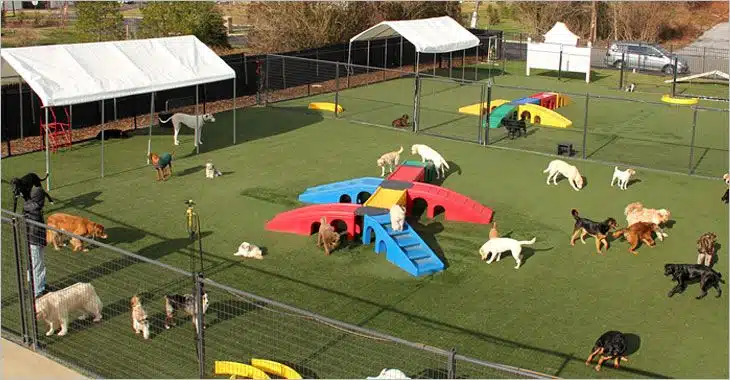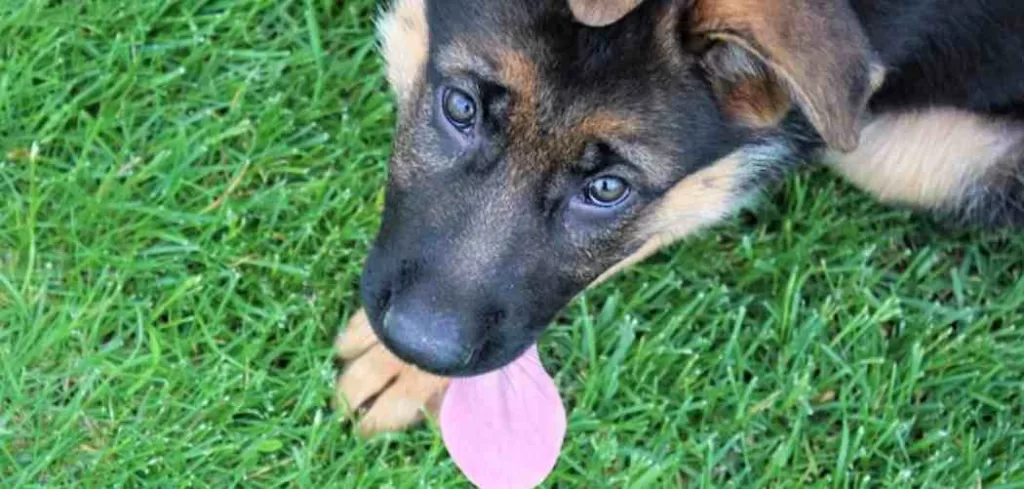Kennel cough, also known as infectious canine tracheobronchitis, is a common ailment that affects dogs, especially when they are in close quarters like boarding kennels or rescue shelters.
Table of Contents
Imagine it as a cold that spreads quickly in a classroom.
The main culprit behind this cough is a bacterium called Bordetella bronchiseptica—think of it as the common cold virus for dogs, but it’s a tiny, wiggly bacteria instead.
This isn’t the only germ that can cause trouble; there are others like the parainfluenza virus (a bit like the flu for us), canine adenovirus (which can cause more serious problems), and even something called Mycoplasma.
Puppies can catch a different bug called canine herpesvirus. All these germs together can make kennel cough a complex problem to solve, but understanding the main player, Bordetella, is a great place to start.
In our blog, we’ll dive into what Bordetella is, how it causes symptoms, what treatments are available, and just how contagious kennel cough can be. So, if you’re a dog owner, a kennel operator, or just love dogs, stay tuned for some valuable insights to keep your furry friends happy and healthy!
For immediate relief try Earth Animal Organic Herbal Remedies (Cough, Wheeze & Sneeze, 2 oz)
Bordetella vaccines are available for dogs that reduce the severity of the disease and completely prevent infection.
Is the Bordetella vaccine necessary for dogs?
The Bordetella vaccine is an essential immunization for canines, classified as a core vaccine due to its critical role in maintaining canine health. This vaccine is universally recommended for all dogs, barring exceptional circumstances where medical contraindications may apply.
For instance, consider the case of a dog shelter where an outbreak of kennel cough could rapidly spread among the inhabitants. In such a scenario, the Bordetella vaccine serves as a vital preventive measure to protect the entire canine population, underscoring its significance as a standard healthcare practice for dogs.

As per the research report, the Bordetella vaccine, administered through the nose, is like a shield against this disease. It contains a harmless version of the Bordetella bacterium, sometimes paired with other agents that cause similar symptoms, to train a dog’s immune system without making them sick.
This vaccine is especially good for puppies because it works even when they still have their mother’s antibodies. It’s like giving them an extra layer of protection in their early, vulnerable weeks.
In places like rescue shelters, where dogs from various backgrounds come together, this vaccine is a lifesaver. It works fast, which is crucial because new dogs can be vaccinated right when they arrive and have a defense against kennel cough in just a couple of days.
Talk to your veterinarian about vaccinating your puppy at the right age regarding Bordetella.
Is Bordetella the same as kennel cough?
Kennel cough, or canine infectious tracheobronchitis, is a bit like the common cold for dogs, but it can be caused by a variety of germs. It’s especially common in places where dogs live together, like animal shelters or kennels.
The main culprits behind this cough are a trio of pathogens: Bordetella bronchiseptica, Canine Adenovirus, and Canine Parainfluenza virus.
But that’s not the whole story. Some secondary invaders can jump in after the primary ones have weakened a dog’s defenses. These include viruses like the Mammalian Reovirus and Canine Respiratory Coronavirus, as well as bacteria like Mycoplasma and Streptococcus.
These secondary agents can make the illness last longer and hit harder than if just the primary pathogens were involved.
Now, Bordetella bronchiseptica is a particularly interesting germ because it doesn’t just stick to dogs. It can affect a whole range of animals, including pigs, cats, and even bears, and sometimes it can jump between species.
This means that if you have a cat and a dog living together, they could potentially pass Bordetella back and forth.
So, is Bordetella the same as kennel cough? Not exactly. Bordetella is a key player, but kennel cough can be a team effort of multiple germs. In our blog, we’ll explore this relationship further, looking at how these different pathogens cause kennel cough and what that means for your pet’s health.
What are the symptoms of Bordetella in dogs?
If your dog suffers from kennel cough, you may notice one or more of the following symptoms:
Strong cough, often with a “honking” sound – this is a very obvious symptom.
- Leaking nose.
- Sneeze.
- Laziness.
- Lack of appetite.
- Low fever.
How long after the Bordetella vaccine can I board my dog?

When you’re planning to board your dog and considering the Bordetella vaccine, it’s important to know how long it takes for the vaccine to start protecting your furry friend. The Bordetella vaccine, which guards against kennel cough, comes in different forms, including oral and intranasal (given through the nose).
The information you provided talks about an oral vaccine tested in a study, which showed that it was effective in reducing the disease associated with Bordetella bronchiseptica (Bb) in puppies. However, it doesn’t specify the exact time frame for when a dog can be boarded after receiving this vaccine.
From what I found, it’s generally recommended that dogs should receive the Bordetella vaccine at least one week before they are boarded. Source: sciencedirect.com
This time allows the vaccine to stimulate the dog’s immune system and provide protection against the disease. Some boarding facilities may have specific requirements, so it’s always a good idea to check with them in advance.
Additionally, if it’s the first time your dog is getting the vaccine, or if it’s a booster shot after a long interval, the protective effect might take a little longer to kick in.
In summary, to ensure your dog is ready for boarding and mingling with other dogs, aim to have the Bordetella vaccine done at least a week before. This will help keep your dog healthy and give you peace of mind while you’re apart.
How is Bordetella transmitted?
When we talk about Bordetella in dogs, we’re usually referring to Bordetella bronchiseptica, a key player in the mix of pathogens that cause kennel cough. This bacterium is a relative of Bordetella pertussis, the germ responsible for whooping cough in humans.
Despite their genetic similarities, they differ in how they spread and the range of hosts they infect.
Bordetella pertussis is a human-only bug that causes a severe cough and is passed on through close contact. It’s like a chain reaction – one sick person coughs, and the people around them are at risk of catching it.
This is why whooping cough can stick around even when most people are vaccinated. The bacteria don’t survive long outside the body, so they need a continuous line of people to infect.
For dogs, Bordetella bronchiseptica is transmitted in a similar way. When an infected dog coughs or sneezes, the bacteria can spread to other dogs nearby. It’s particularly easy for this to happen in places where lots of dogs gather, like kennels or dog parks.
Just like with whooping cough in humans, the early stages of infection are the most contagious for dogs.
In our blog, we’ll explore how Bordetella bronchiseptica is transmitted among dogs, drawing parallels to its human counterpart to help you understand the risks and how to protect your pet.
Whether you’re a dog owner, a vet, or just curious about canine health, you’ll find out how this bacterium spreads and what you can do to stop it. Stay tuned for an informative journey into the world of kennel cough!
Are there any risks associated with the Bordetella vaccine?
Vaccination is generally a very safe medical procedure, and the compelling benefits of vaccination should be weighed against any risks.
However, your veterinarian may advise you to take the Bordetella vaccine if your dog is immunocompromised, sick, or pregnant, and she will discuss the risks and benefits of vaccination for dogs with a previous history of vaccine reactions.
Bordetella is the most common cause of kennel cough in dogs, it is not just one.
Other bacteria and viruses, including the parainfluenza virus, can also cause kennel cough, meaning that vaccinated dogs can also get kennel cough from another source.
Although dogs have the Bordetella vaccine, owners need to be aware of the symptoms of kennel cough.

